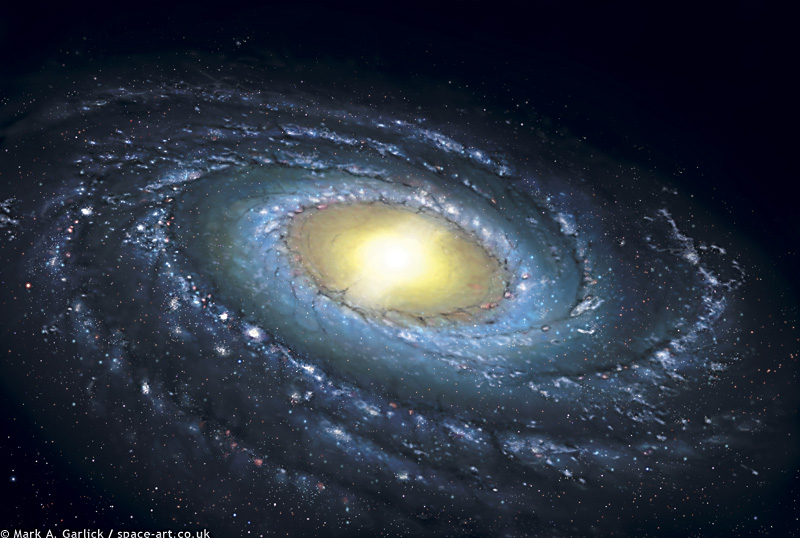A Little Knowledge...
 I was never any good at science in school. I took the bare minimum number of classes required to graduate high school, then did the same in college. And, I did my best to retain none of what little I was supposed to learn.
I was never any good at science in school. I took the bare minimum number of classes required to graduate high school, then did the same in college. And, I did my best to retain none of what little I was supposed to learn.Recently this has begun to feel like a shortcoming, which is why I decided to read Bill Bryson's A Short History of Nearly Everything, a book written for science morons such as myself. I haven't learned much from it, but what I have learned has me wishing I hadn't. In fact, it has me huddled in a fetal position in the corner of my office.
Here's what I've learned: Our solar system consists of one star, along with an ever-changing number of planets, some moons, and a whole bunch of space detritus. It is part of a galaxy called the Milky Way, which consists of somewhere between 200 and 400 billion stars. Billion. That is not a typo. Billion. See? Not a typo.
The Milky Way is one of approximately 140 billion galaxies which, I assume, are more or less the same size as the Milky Way, give or take a few hundred thousand light years. Once again, billion. 140 billion, by the way, is the number of frozen peas it would take to fill Carnegie Hall from floor to ceiling, wall to wall. Just in case you were wondering about that.
What this means is not only are we entirely insignificant in the Grand Scheme of Things, but also that our feeble minds are completely incapable of truly comprehending just how insignificant we are.
I'm going to put the book down now and go watch some Spongebob Squarepants.

Labels: life


4 Comments:
At 7:57 PM , Anonymous said...
Anonymous said...
a not all that famous man once said in a really famous movie... "So that speck of dirt under my fingernail, it could be an entirely different solar system..." I think that's what he said...
At 6:32 AM , John Albin said...
John Albin said...
And you want to hear something really scary? Around some of those billions of stars there are dozens of planets revolving. And on every one of those hundreds of billions or trillions of planets, every radio station is owned by Clear Channel and switching an all talk format.
At 7:26 AM , Anonymous said...
Anonymous said...
Well, that puts things in perspective.
Are you a Sopranos fan, Tom? Your post reminds me of a conversation on one of last year's episodes. Tony is in the hospital, recovering from a gunshot wound, and he tells his cousin Christopher that he recently read that if the entire existence of the earth were the size of the Empire State Building, the time in which human beings have existed would be the size of a postage stamp. "Do you understand how insignificant that makes us?" Tony asks. Christopher (an egomaniac til the bitter end) calmly replies, "I don't feel that way."
Alex
At 5:22 AM , Wendy said...
Wendy said...
I'm just wondering how you know how many frozen peas it would take to fill Carnegie Hall.
Have you ever read An Incomplete Education? It has a page on all kinds of subjects (literature, science, history...) for a quick learn... it's a bit tongue in cheek.
Post a Comment
Subscribe to Post Comments [Atom]
<< Home